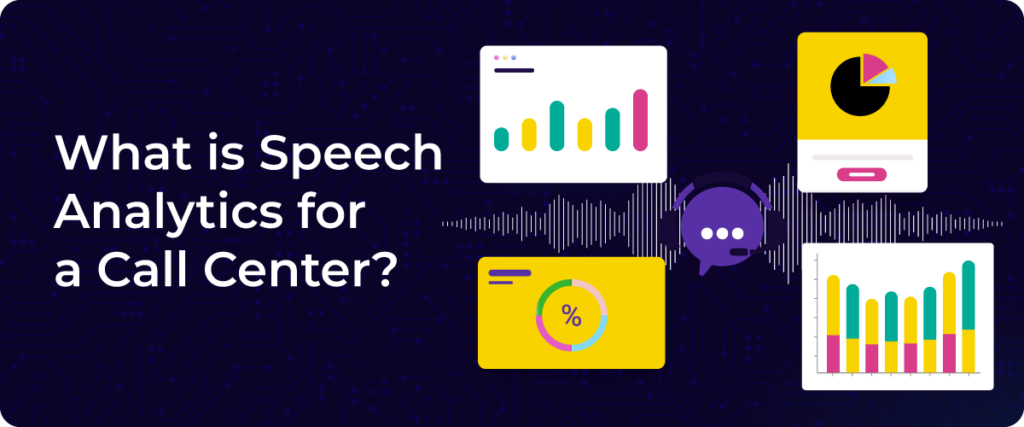Effective quality assurance skills are crucial for delivering exceptional customer support. A study by the SQM Group found that while 93% of customers expect their issues to be resolved on the first call, 30% of calls are not, underscoring the need for robust quality assurance processes.
By developing a comprehensive quality assurance skill set, businesses can enhance service quality, boost customer satisfaction, and foster long-term loyalty.
Outline
1. Quality Assurance in Customer Support
2. Evolving Role of QA Agent
3. 12 Essential Quality Assurance Skills for Call Center Success
4. Impact of Skilled QA Agents on Customer Support
5. Conclusion
6. Frequently Asked Questions (FAQs)
Quality Assurance in Customer Support
Quality assurance (QA) in call centers and customer support is like the quality control department of customer interactions–it ensures that every, call, chat, email, and message meets company standards and keeps customers happy.
It is not about spotting mistakes, it is about refining processes, coaching agents, and maintaining consistency to deliver top-tier service. A well-rounded quality assurance skill set helps businesses stay ahead by improving both agent performance and customer satisfaction.
Beyond monitoring calls, QA plays a crucial role in shaping the customer experience and boosting operational efficiency. A structured QA process helps pinpoint recurring issues, improves response accuracy, and ensures compliance.
AI-powered tools are the future. Traditional QA methods rely on manual reviews, which are time-consuming and often inconsistent. AI solutions such as ConvoZen.AI, automate call analysis, detect patterns, and provide real-time feedback, helping businesses fine-tune their customer interactions at a scale.
Evolving Role of QA Agent
The role of QA agents in call centers is no longer about reviewing calls and filling out scorecards. As customer expectations are rising, Quality assurance skilled professionals must adapt and become strategic players in enhancing customer experience and operational efficiency. Here is how the role is evolving:
1. Auditors to Coaches
QA agents are shifting from mere compliance checkers to performance coaches. Instead of just flagging mistakes they now provide actionable feedback and training to improve agent skills.
2. Leveraging AI & Automation
AI-driven tools handle routine call monitoring, allowing QA agents to focus on deeper analysis, spot trends, and refine quality assurance and quality control strategies.
Learn How to Boost ROI through Automation
3. Customer-Centric Approach
Instead of just evaluating internal metrics, QA now prioritizes customer sentiment, ensuring interactions align with customer expectations and needs.
4. Data-Driven Decision Making
With access to detailed analytics, QA professionals now play a role in shaping customer service policies, refining scripts, and optimizing support strategies.
5. Proactive Problem-Solving
QA agents no longer wait for issues to arise. They proactively analyze customer interactions to identify pain points and prevent recurring issues.
12 Essential Quality Assurance Skills for Call Center Success
#1. Quality Assurance Core Skills
The effectiveness of the quality assurance skills framework depends on a QA agent’s ability to analyze, communicate, and manage multiple tasks efficiently. Below are the core quality assurance skills every QA professional needs
1. Analytical Thinking
QA agents must interpret call data, performance metrics, and customer sentiment to identify coaching priorities. AI-powered tools provide insights, but human expertise is essential in recognizing patterns, predicting challenges, and refining support strategies.
Strong analytical skills help drive meaningful improvements in quality assurance and quality control processes.
2. Attention to Detail
Minor errors in compliance, tone, or resolution steps can impact customer satisfaction. A skilled QA agent identifies these subtle issues and ensures that every interaction meets the company’s service standards. This precision helps maintain consistency and enhances the overall quality assurance skill set.
3. Communication Skills
Providing feedback is not just about pointing out mistakes–it is about guiding agents toward improvement. QA professionals must communicate insights effectively, ensuring that managers and frontline agents understand and act on their recommendations.
Continuous learning is the minimum requirement for success – Peter Drucker, Father of Management
4. Empathy & Customer-Centric Mindset
QA isn’t just about checking boxes and marking scores–it is about enhancing customer experience. Evaluating interactions through a customer-first lens ensures that service improvements align with real customer needs, reinforcing trust and brand loyalty.
5. Time Management
With responsibilities spanning audits, reports, and coaching. QA agents must manage their workload efficiently. Strong organizational skills help them balance routine evaluations with strategic improvements, making skills for quality assurance more effective in day-to-day operations.
6. Technical Proficiency
Modern QA processes rely on AI-driven insights, CRM systems, and automation tools. QA agents must navigate these platforms effectively, using data to enhance assessments and streamline evaluations.
Mastering quality assurance technical skills is essential for leveraging technology to drive better outcomes.
#2. Quality Assurance Advanced Skills
Beyond core quality assurance skills, advanced competencies help QA agents drive strategic improvements and long-term efficiency. These quality assurance skills enhance monitoring, process refinement, agent development, and compliance management.
7. Data Interpretation
QA agents must analyze customer interactions, agent performance trends, and feedback data to pinpoint inefficiencies. The ability to extract meaningful insights from AI-generated reports helps refine training programs and improve quality assurance and quality control processes.
8. AI Tool Literacy
With AI-driven QA solutions automating monitoring tasks, QA professionals must understand how to leverage these tools effectively. Mastery of AI-powered analytics enhances precision in identifying service gaps and coaching opportunities, strengthening the overall quality assurance skill set.
Read the Guide on the 15 Best Sales Enablement Tools
9. Process Optimization
QA isn’t just about identifying issues—it’s about improving workflows. Agents skilled in process optimization help streamline operations, reduce handling time, and enhance resolution efficiency. This ensures customer support teams operate at peak performance.
10. Adaptability
Customer expectations, technologies, and company policies evolve constantly. QA professionals must quickly adjust to new tools, compliance guidelines, and support strategies, making adaptability a crucial quality assurance technical skill.
11. Coaching & Mentorship
The best QA agents go beyond evaluations and actively mentor customer support teams. They provide targeted coaching, deliver constructive feedback, and help agents enhance their quality assurance skills, fostering a culture of continuous improvement.
12. Compliance Expertise
Ensuring adherence to company policies and industry regulations is a key QA responsibility. A deep understanding of compliance frameworks helps prevent legal risks and maintain customer trust while reinforcing high service standards.
Impact of Skilled QA Agents on Customer Support
A well-trained QA team is the backbone of exceptional customer support. Skilled QA agents do more than evaluate interactions and score calls–they actively enhance service quality, improve operational efficiency, and drive customer satisfaction. Here is how:
1. Higher Customer Satisfaction and Loyalty
Skilled QA agents ensure that every customer interaction meets quality standards, from tone to resolution effectiveness. By identifying improvement areas and coaching agents, they help create consistently positive experiences, fostering long-term customer loyalty. A well-monitored support system ensures customers feel valued and heard.
2. Improved Agent Performance & Engagement
By providing targeted feedback and training, QA agents enhance frontline performance. Rather than just pointing out mistakes, they offer actionable insights that empower agents to refine their approach. This not only improves service quality but also boosts agent confidence and job satisfaction, reducing turnover rates.
3. Efficient Issue Resolution & Process Optimization
QA agents analyze trends in customer queries and agent performance, allowing businesses to streamline workflows and reduce resolution rates. Their expertise in quality assurance skills helps eliminate inefficiencies, ensuring a smoother customer journey.
4. Stronger Compliance & Risk Management
From data security to industry regulations, QA agents help ensure compliance with legal and operational standards. Their keen attention to detail minimizes compliance risks while maintaining trust between the company and its customers.
Click here to learn more about how ConvoZen.AI enhances Quality Assurance
/
Conclusion
In summary, the essential quality assurance skills such as analytical thinking, communication, attention to detail, technical proficiency, adaptability, and others mentioned above are necessary for any skilled quality assurance agent. These abilities ensure the quality of each interaction but also drive continuous improvements across customer support operations.
The synergy between human and AI-driven QA tools–such as those powered by ConvoZen.AI–enhances efficiency, providing real-time insights and actionable data for more informed decisions.
However, while AI is a powerful ally, the human touch remains critical in interpreting results, coaching agents, and maintaining customer-centric practices. As customer expectations evolve, investing in the ongoing development of quality assurance skills ensures teams can keep pace with changing demands, fostering long-term success and operational excellence.
Frequently Asked Questions
1. What’s the most critical quality assurance skill for call center supervisors?
Analytical thinking is crucial for supervisors to interpret data, identify trends, and drive actionable improvements. This skill ensures consistent quality by highlighting areas for agent development and optimizing customer support processes.
2. Can AI replace human QA auditors?
No, AI complements human auditors by automating repetitive tasks like call evaluations and data collection. Humans still provide the necessary context, coaching, and critical thinking for complex issues, enhancing overall quality assurance.
3. Is quality assurance a skill?
Yes, quality assurance is a skill that requires a combination of attention to detail, analytical thinking, communication, and technical proficiency. It ensures that customer interactions meet standards and drive continuous improvement in support operations.
4. How can teams stay adaptable in AI-driven QA?
Teams can stay adaptable by continuously learning about AI advancements and integrating them with traditional QA practices. This helps leverage AI insights for strategic improvements while maintaining human oversight for coaching and personalized feedback.
Unleash Your Contact Center’s Potential Today! 👉 Get Started with ConvoZen.AI and Elevate Customer Experience.


